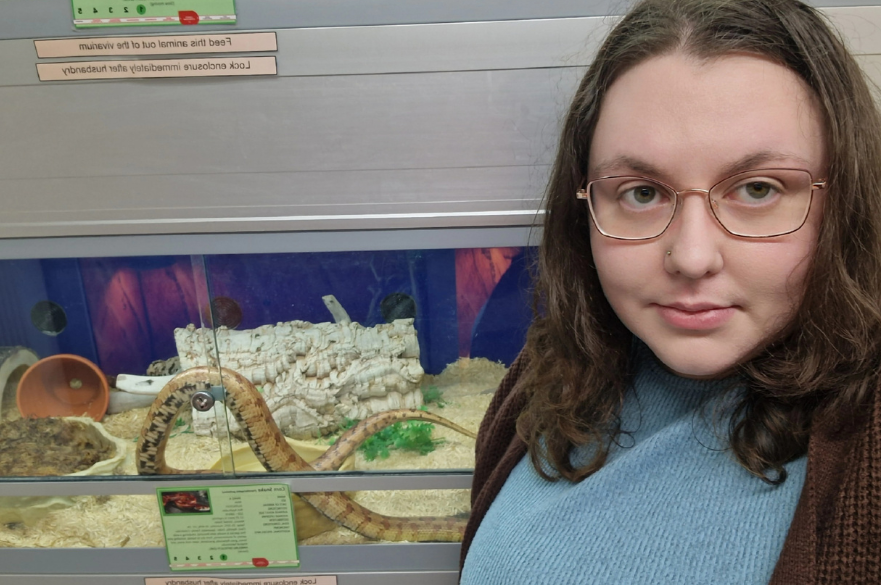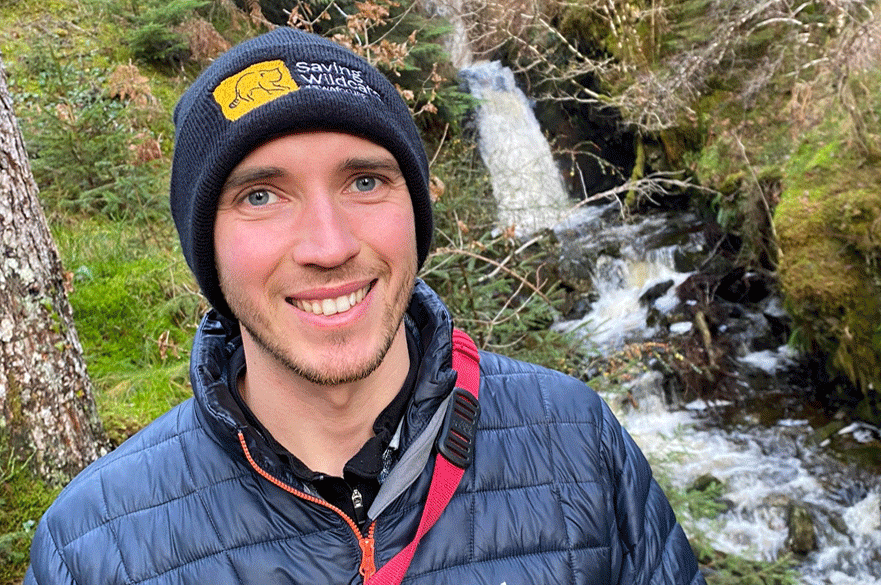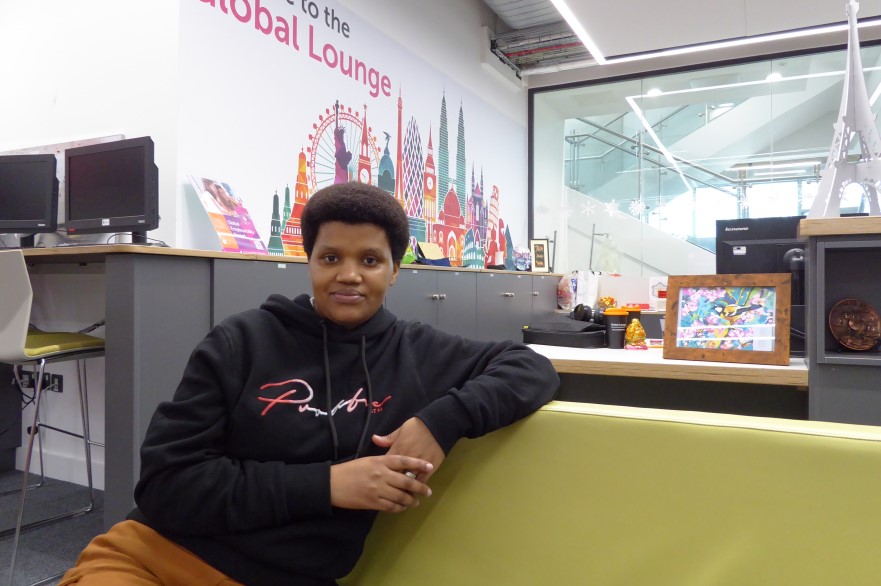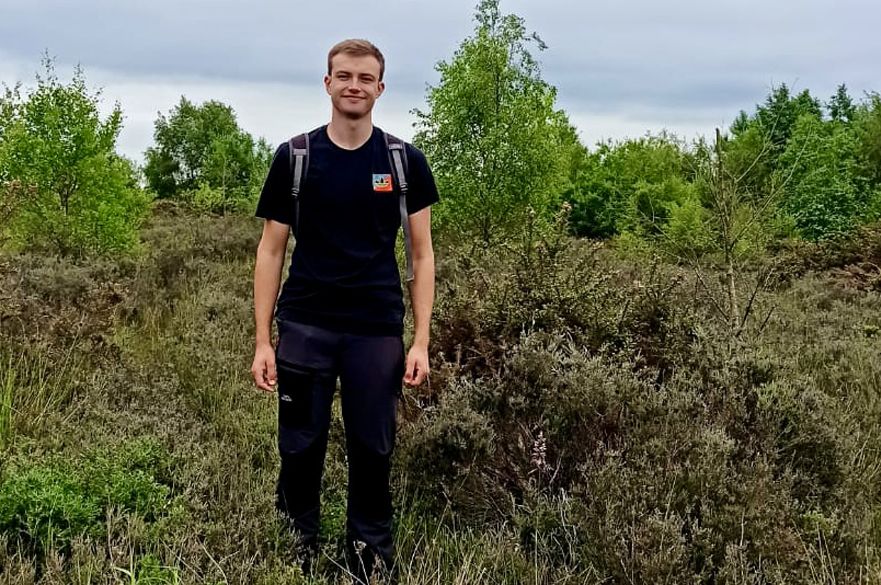
I honestly wouldn’t have chosen anywhere else; I didn’t even look at any other universities, when you’ve got somewhere that cares about it’s students, and feels like home – why would you look elsewhere?
More about Alice
Why did you choose to study your course at NTU?
I’d been to NTU for my undergrad, and I’d felt at home there. It wasn’t easy, I had a lot of bereavement during my final year, but the support I had was amazing. I honestly wouldn’t have chosen anywhere else; I didn’t even look at any other universities, when you’ve got somewhere that cares about it’s students, and feels like home – why would you look elsewhere? During my undergrad, I fell in love with the atmosphere of Brackenhurst; if you want a walk then there’s so many to choose from. The grounds are extensive, and I’ve got friends who would go walking for a few hours at a time and see something new each time. There are enough amenities on campus which mean you don’t really need to go out unless you want to explore wider Nottinghamshire.
What made your mind up about studying a PG course at Brackenhurst Campus?
I first came to Brackenhurst in 2019 and didn’t expect to do anything beyond my bachelor’s. I discovered how much there was within my chosen degree subject, and decided I wanted to specialise. I took a couple of years out but still felt heavily supported by NTU and that’s what cemented my desire to come back.
What do you enjoy most about your course?
My social circle is what makes the stressful days better, but I’m not sure that counts. I love how it gives us the freedom to specialise in what we want to do, and what makes us feel fulfilled. There’s also something for everyone, if you’re someone who enjoys research opportunities then the big projects will be ideal for you. Those wanting to use the labs will have plenty of opportunities. If you’re wanting a new challenge and to explore your passions then GIS and the husbandry, genetics, and recovery modules will be as exciting for you as they are for me.
How do you find your modules and what have you most enjoyed studying/researching? Please tell us about any research you have been involved with during your time as a postgraduate student.
I haven’t done any commissioned research, but I’ve gotten more involved with various groups to do survey work. I feel it’s important as someone with a disability that I prove that we’re not just confined to labs and other desk duties; disabilities don’t define us and we can do what we need with adjustments. Modules wise, I’m really enjoying the captive breeding, species recovery, and GIS modules. I wasn’t expecting to enjoy genetics with how complicated it looks, but it’s actually a broad and fascinating subject.
What do you think about the facilities available on your course and what do you use the most?
I cannot express how much I love the library. There’s so much opportunity within one building; and we’re very lucky to have such a wealth of knowledge right there. I also love visiting the animal unit, it’s such a calming environment, I’d recommend all students go and have a look.
What do you think about Brackenhurst Campus? What do you get up to in your spare time?
It’s a running joke between the peers on my course that I don’t sleep as I’ve taken on so much outside of my course. I’ve taken the time to complete various NTU opportunities like their sustainability awards, and enterprise awards. Some of the modules offered extra training courses through third parties so I’ve completed them. I’ve started volunteering at so many places and have been brave enough to just reach out to organisations asking for big things like interviews and opportunities (don’t ask and you won’t get, the worst that can happen is they say no). I’m often found behind a camera trying to show the beauty of the natural world. The orangery and the library are my regular hang out spots, but I’ll also visit the animal unit if I need to decompress. There’s so much to do and explore, so I could really do with NTU developing a way of putting an extra 12 hours in the day.
What is your top tip for someone considering studying/ living at Brackenhurst Campus?
I never lived on campus for my undergraduate degree or for my masters, so I can’t comment on that area. As someone who commutes, it’s important you carry spare comfy shoes in your car or bag – get a shower cap and put it on the soles to avoid more mess than you need. Explore the campus grounds too, it’s more than just the educational buildings – you need to go and look at the ponds. Get to uni super early one morning, and I promise there is nothing prettier than a Brack sunrise, it is worth the commute. Bring a camera where possible, because you will see some beautiful species and the regret when you don’t have the ability to capture that moment stays with you. Lastly, go for course rep; it’s a fantastic way of getting to show your peers that you’re a caring person, and for learning how to advocate for yourself and others.
Have you been involved in any placements, work experience or volunteering as part of your course? If so, what did you do and what did you achieve?
I’ve been working with EMEC ecology on their website, this initially started as marketing but has since branched out into GIS map creation. I’ve also become the chair of my local residents association and have done various work with them to appeal planning decisions, and encourage the local people to live in a state of convivial conservation. I’ve maintained my volunteering for various other organisations and been trying to branch out into areas I haven’t got much knowledge or experience within.
Why would you recommend your course to someone considering studying it?
It’s not the easiest and there will be times you want to quit; you’ll be awake at 3am wondering if you made the right choice. You did and please stick with it. There are not many places you can do extra courses for free and be given so many chances to make yourself stand out to employers. Not only that but you picked this course for a reason, so I’d recommend that you roll with the hard days. It’s hard because it’s so interesting and varied with the range of subjects, having something for everyone means that not everything will suit you, so it’s brilliant that you get to really challenge yourself on a regular basis. You’re on a beautiful campus with so many species of conservation concern. The hard days and ‘am I doing the right thing?’ moments do balance out when you look at that bigger picture.
What are your plans for after the course and how do you feel your course has/ will help you to achieve that goal?
So, I’m 30 this year (2025) and I have absolutely no idea. My dream career was taken by disability and I’m trying to find something else I want to do with my life. I thought I’d be embarrassed to admit this but I’m really not. There’s so much opportunity to find where I want to be, I might do some of the modules in term two and go ‘this is where I need to be’. I’m the happiest I’ve been with my volunteering at EMEC so I’d love to work for them full time, but I don’t have a specific role planned out. You live, learn, and grow around the experience. Although I’ve spent hours mourning the dream job that was snatched away, I’ve learned to embrace each new opportunity which comes up. I’m getting married after the course is done – way more stressful to plan than anything on the MSc and wanting to just enjoy life. I kind of feel like having my ‘dream’ planned is what made things feel more pressured. The plan is to just say yes to opportunities and learn to really enjoy whatever I’m able to achieve.
Still need help?
-

STUDENT PROFILE
Alex Scurrah-Price
Endangered Species Recovery and ConservationUnited Kingdom
https://www.ntu.ac.uk/study-and-courses/courses/our-students-stories/animal-rural-environmental-sciences/alex-scurrah-price
-

STUDENT PROFILE
Anne Nyiransabimana
Biodiversity ConservationRwanda
https://www.ntu.ac.uk/study-and-courses/courses/our-students-stories/animal-rural-environmental-sciences/anne-nyiransabimana
-

STUDENT PROFILE
Joshua Morgan
Endangered Species Recovery and ConservationUnited Kingdom
https://www.ntu.ac.uk/study-and-courses/courses/our-students-stories/animal-rural-environmental-sciences/joshua-morgan